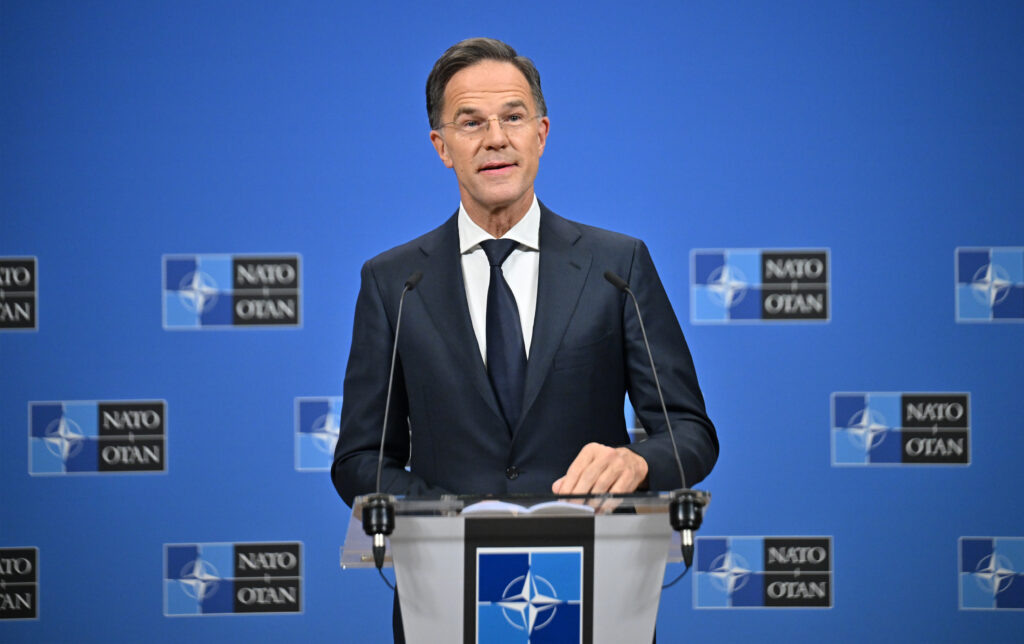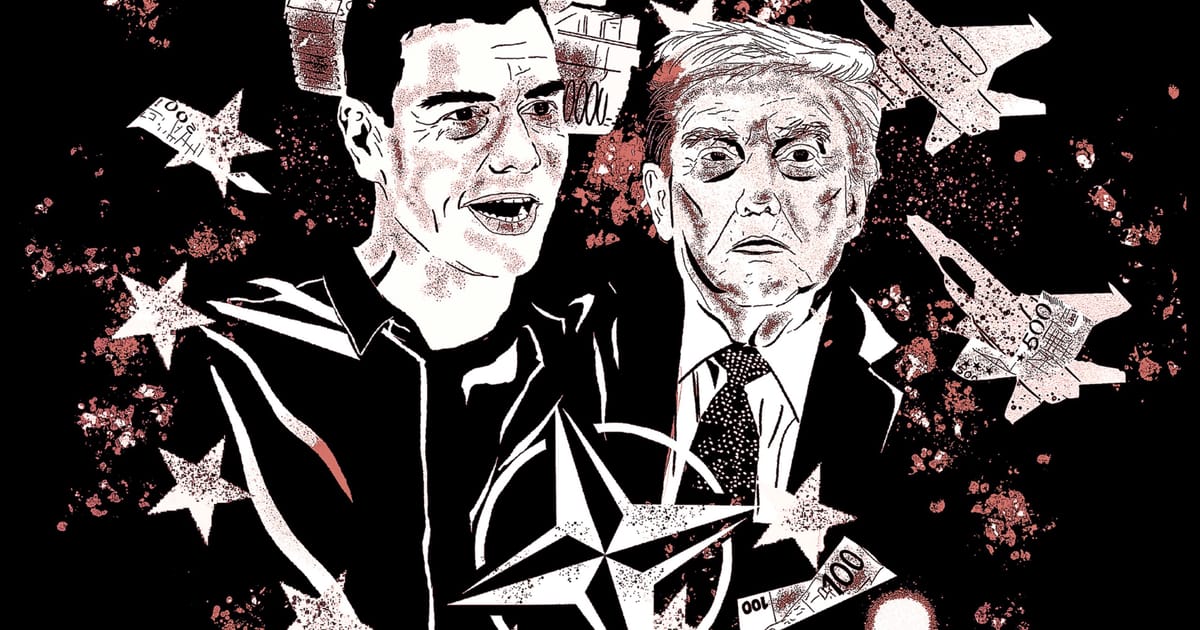“Trade falls under the exclusive competence of the European Commission acting on behalf of all EU member states,” said Commission spokesperson Olof Gill. “We will respond appropriately, as we always do, to any measures taken against one or more of our member states, and I also remind you that we now have an EU-U.S. trade deal in place. This is a platform for addressing any further trade or trade related questions.”
Not worried
At home, however, Sánchez may not be too worried. The ongoing tussle with Trump may make relations between Madrid and Washington awkward, but the tensions are a net positive for the prime minister domestically.
According to the latest surveys, Sánchez is an unpopular figure whom 67 percent of the population consider “untrustworthy.” But polls show a majority of Spaniards back him when it comes to his refusal to dramatically ramp up Spain’s military spending.
 NATO Secretary-General Mark Rutte tried to downplay the spat at a meeting of the alliance’s defense ministers in Brussels on Wednesday. | Aydemir/Getty Images
NATO Secretary-General Mark Rutte tried to downplay the spat at a meeting of the alliance’s defense ministers in Brussels on Wednesday. | Aydemir/Getty Images
Pablo Simón, a political scientist at Madrid’s Carlos III University, said Spain has traditionally been reluctant to get excessively involved in international security policy and remained neutral in global conflicts. The country’s decision to join NATO in 1982 was extremely controversial, and millions participated in protests against the Spanish government when it endorsed the 2003 U.S. invasion of Iraq.
“Sánchez’s position is popular because it reflects [the] prudent approach [of Spaniards] to the defense issue, and Donald Trump is an unpopular figure in Spain,” Simón said. “From a strictly domestic political perspective, as long as Spaniards feel that they are meeting their obligations as a country, it’s a winning strategy.”
Even if Sánchez wanted to bow to Trump’s demands, he lacks the political support to commit the country to a significant increase in its defense spending, according to Simón.
